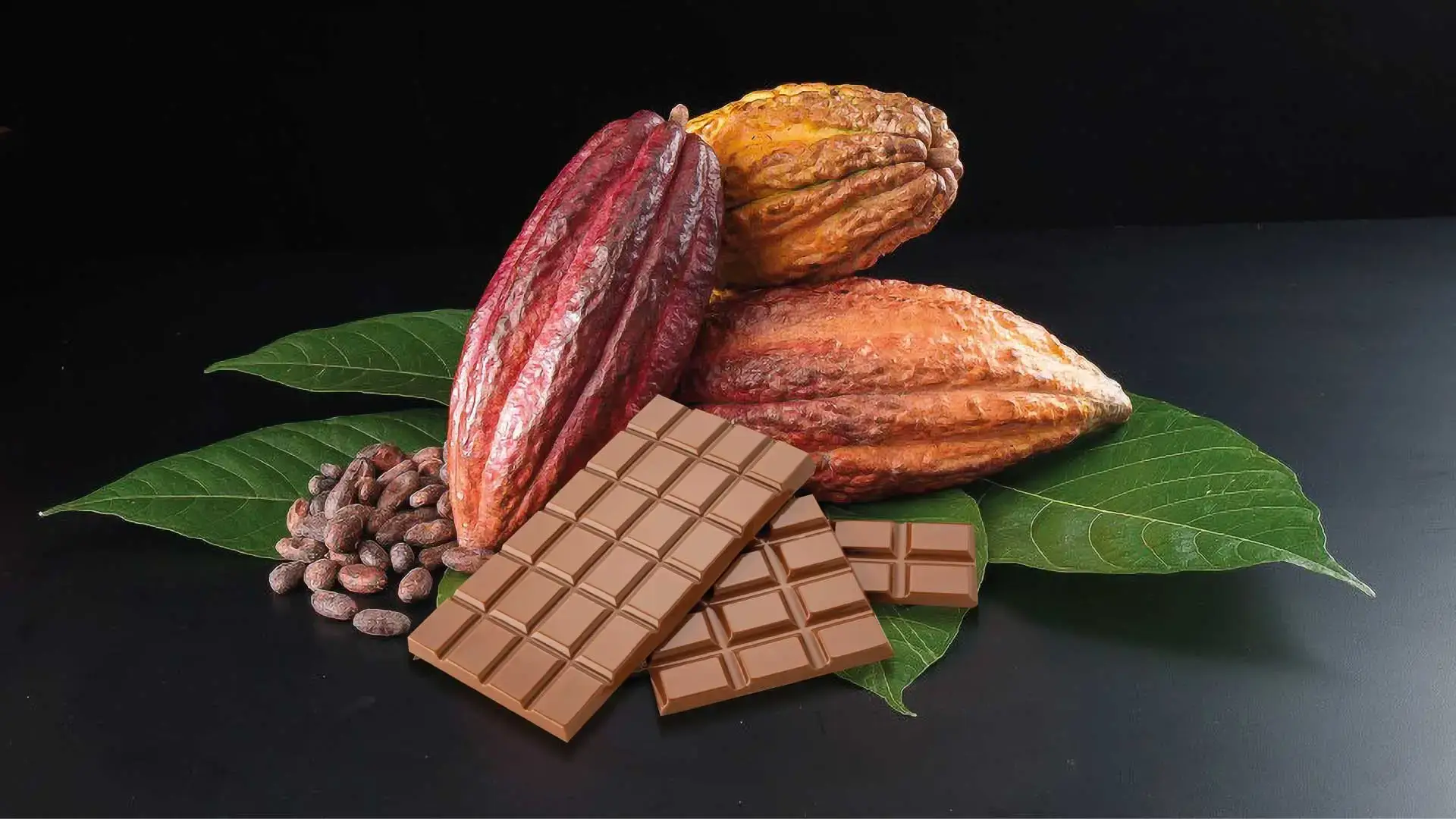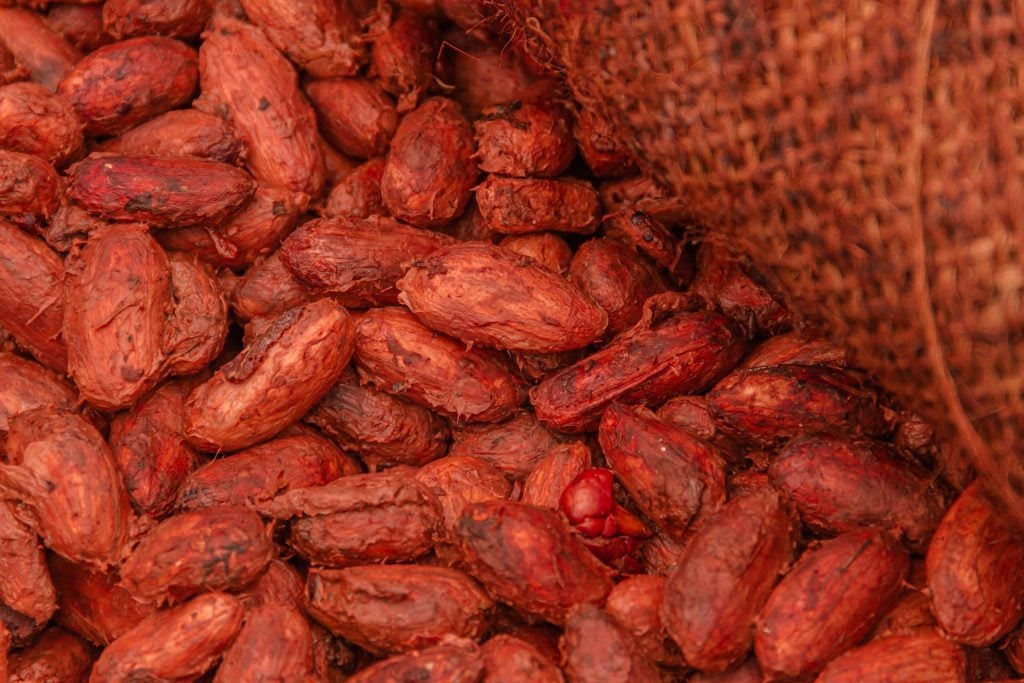Driven by evolving health trends, sustainability efforts, and a shift toward ethical consumption. No longer a niche, plant-based chocolate has established itself in the market, stabilising its growth and starting to explore ways to satisfy both better-for-you and traditional consumers. As consumer expectations grow, so do the offerings.
🌿 Looking to expand your plant-based portfolio? Contact our team today for tailored formulations and trend insights.Beyond avoiding animal-based ingredients, today's shoppers seek clean-label products with minimal processing that deliver both indulgence and transparency. Notably, 42% of global consumers now link “plant-based” to health, while 35% associate it with natural ingredients. However, concerns about over-processing have risen for plant-based choices (Innova Market Insights, 2024).
Keep reading to find out about:
- 📈 5 Key Trends Shaping the Plant-Based Chocolate Market in 2025
- 🌿 Consumer Motivations & Emerging Purchase Barriers
- 🍫 Luker's Approach to Plant-Based Chocolate Innovation
- ✅ Actionable Insights for Chocolate Brands to Stay Competitive in 2025
Let’s look at the evolving plant-based chocolate landscape and see actionable strategies for your brand to meet modern consumer demands while staying true to quality and transparency.
.webp?width=880&height=495&name=plant-based-chocolate-trends-2025%20(2).webp)
Key 5 Trends Shaping the Plant-Based Chocolate Market in 2025
The plant-based chocolate market is evolving rapidly, influenced by consumer preferences for healthier, cleaner, and ethically produced options. Brands seeking to remain competitive must keep pace with these emerging trends, which go beyond vegan claims and focus on transparency, health benefits, and flavour innovation.
1. Clean Label Demand and Perceived Naturalness
A growing number of consumers are scrutinising product labels more closely, prioritising natural ingredients and minimal processing. According to Innova Market Insights (2024), the perception of plant-based products as being "too processed" has risen from the fifth to the third most significant barrier to purchase decisions going in 2025.
This shift emphasises the need for clean-label formulations with transparent sourcing, minimal additives, and simple ingredients that align with both health-conscious and flexitarian consumers' expectations.
2. Health and Wellness as Core Motivators
Health remains a major driver for plant-based chocolate consumption. 42% of global consumers associate plant-based products with being healthier, while 35% connect them with naturalness (Innova Market Insights, 2024). This perception aligns with a broader market focus on better-for-you alternatives that balance indulgence with wellness.
Key Features Consumers Look For:
- Lower sugar content
- Dairy-free alternatives for lactose intolerance
- Nutrient-enriched ingredients (e.g., oats, nuts, seeds)
This shift emphasises the need for clean-label formulations with transparent sourcing, minimal additives, and simple ingredients that align with both health-conscious and flexitarian consumers' expectations.
3. Ethical Sourcing and Environmental Impact
Beyond personal health, sustainability and ethical sourcing continue to influence purchasing decisions. Consumers expect brands to support environmental responsibility, including deforestation-free cocoa sourcing, certifications like Rainforest Alliance, and recyclable packaging.
The growing focus on carbon footprint reduction and responsibly sourced cocoa has made certifications like FSSC 22000 and ONAC essential for positioning plant-based chocolate as both high-quality and ethically aligned.
4. Expansion Beyond Dark Chocolate
While dark chocolate continues to dominate the vegan segment, brands are increasingly diversifying their portfolios. Options like plant-based milk chocolates using oat and tiger nut bases are expanding the category, offering creamier, milder profiles that appeal to a broader audience.
5. Functional Ingredients and Nutritional Powerhouses
The rise of functional chocolates is shaping innovation, with ingredients like seeds, nuts, botanicals, and adaptogens becoming key elements in plant-based confectionery. According to Taste Tomorrow (2024), consumers are increasingly drawn to products that combine flavour with health benefits, such as:
- Mushrooms for cognitive support (e.g., reishi, lion's mane)
- Turmeric for anti-inflammatory properties
- Spirulina for energy enhancement
This trend presents an opportunity for brands to differentiate through ingredient stories while maintaining high sensory quality.
What’s Driving Consumer Plant-based Chocolate Demand?
Consumer preferences continue to shift towards healthier, more sustainable food options, positioning plant-based chocolate as a key growth segment in the confectionery industry. Recent data reveals that plant-based chocolate is no longer a niche offering but an expanding category with significant global interest.

According to Innova Market Insights (2024), the top two features consumers associate with plant-based products are health (42%) and naturalness (35%). However, a critical challenge is emerging: the perception that plant-based products are overly processed. In fact, the lack of perceived naturalness has risen from the fifth to the third most significant barrier for purchasing plant-based products, highlighting the importance of clean labels and minimal ingredient lists (Innova, 2024).
Recent insights from Innova Market Insights (2024) highlight key factors influencing plant-based purchasing decisions:
- Health Consciousness: 42% of consumers associate plant-based products with health benefits, making nutrient density, lower sugar content, and functional ingredients increasingly important.
- Naturalness: 35% of consumers link plant-based products with naturalness, but the perception of over-processing has become a significant barrier, rising from the fifth to the third most cited reason for avoiding plant-based options (Innova, 2024).
- Sustainability and Ethical Sourcing: Plant-based products appeal to eco-conscious consumers, especially when linked to sustainability claims like palm oil-free, ethically sourced cacao, and reduced carbon footprints (Taste Tomorrow, 2024).
- Diverse Dietary Needs: Beyond veganism, plant-based chocolates now appeal to flexitarians, lactose-intolerant consumers, and those seeking allergen-free alternatives.
👉 Explore how plant-based couvertures can fit into your portfolio👈
The rise of flexitarianism has made oat milk chocolate and nut-based alternatives popular choices due to their creamy texture and nutritional appeal, bridging indulgence with better-for-you claims.
|
🔎Luker Chocolate’s Experience in Plant-Based Innovation Our journey in plant-based chocolate development is rooted in observing evolving consumer expectations for cleaner labels and more inclusive options. From flexitarian diets to a growing preference for dairy-free alternatives, we've expanded our formulations to offer plant-based couvertures that balance taste, texture, and performance without compromising quality. Drawing from market insights and hands-on collaboration with brands, we've developed a range of plant-based couvertures tailored for diverse applications, including snacking, enrobing, and moulding. Each product is designed to meet modern demands for health-conscious and sustainable options while maintaining the indulgent experience chocolate lovers expect. Luker’s Plant-Based Innovations:
💡 Explore our Better-for-You couvertures here. |
Key Considerations for Brands Developing Plant-Based Chocolate

- Ingredient Transparency: Clear labelling and minimal ingredient lists are critical for building trust. Consumers increasingly avoid products perceived as overly processed, with 35% linking "plant-based" to naturalness (Innova Market Insights, 2024). As eco-conscious purchasing rises, brands prioritising minimal ingredient lists with familiar components and clear traceability will gain trust.
- Health Remains Central: 42% of global consumers associate plant-based with health benefits (Innova Market Insights, 2024). Functional ingredients like seeds, superfoods, and lower sugar content continue to shape product innovation.
- Taste and Texture: Maintaining indulgence without dairy remains a top challenge, with a growing focus on oat, rice, and tiger nut formulations. With nearly 50% of global consumers seeking to integrate plant-based options into their diets, brands must balance taste-first approaches with health and sustainability claims.
- Diverse Dairy Alternatives: The market is expanding beyond oat milk to alternatives like tiger nut and coconut milk, broadening options for allergen-free formulations as consumers expect diversity in plant-based alternatives.

📈 Looking to create market-relevant plant-based chocolate? Let’s collaborate on your next innovation.
Meeting the Demand for Plant-Based Chocolate
The plant-based chocolate market has consumer expectations reaching beyond simple dairy-free alternatives. Today’s consumers seek nutritious, sustainably sourced, and indulgent products that deliver both on taste and quality. As trends like flexitarianism and clean labelling grow, the demand for transparent, minimally processed chocolates will continue to shape the market landscape.
At Luker Chocolate, our plant-based couvertures have been crafted to meet these evolving needs, balancing indulgence with mindful formulation. Whether you're looking to create a dairy-free bar, develop a nutrient-enriched snack, or expand your premium product range, our formulations offer both versatility and exceptional quality.
🌿 Contact our team today for tailored solutions or download our product sheets to learn more about our plant-based couvertures.























